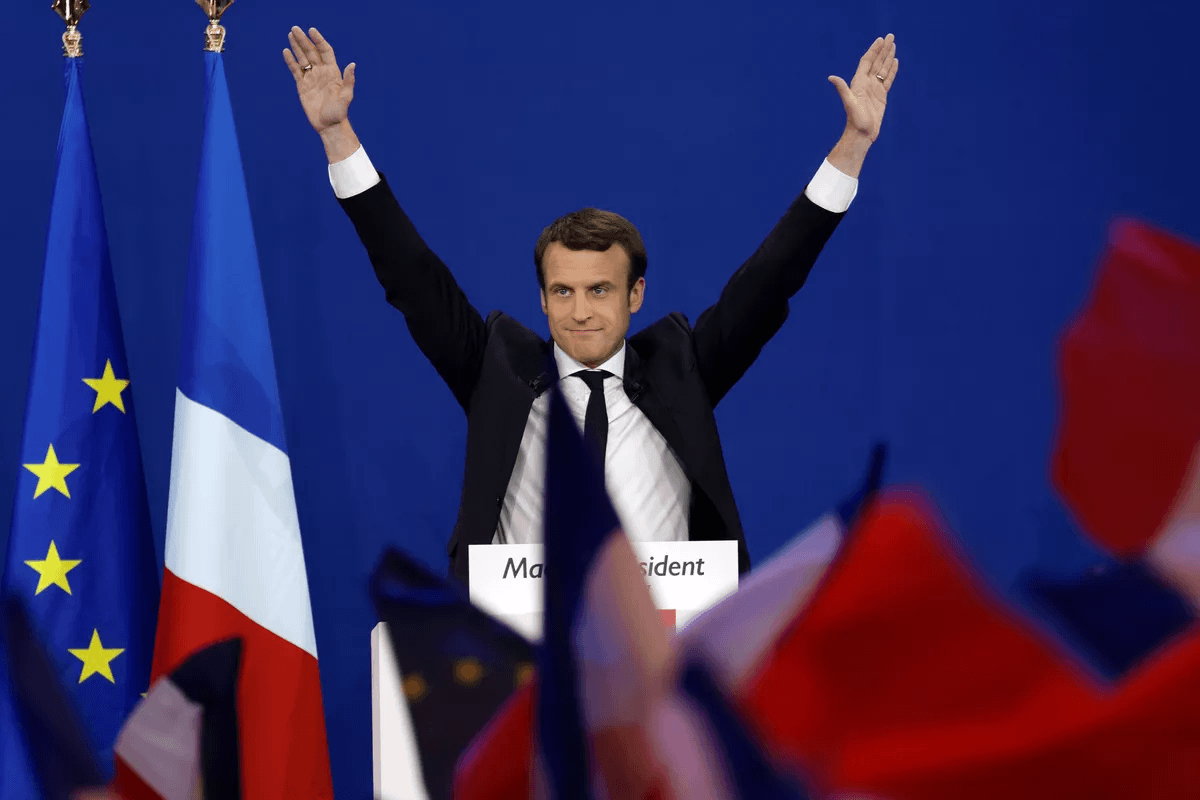French President Emmanuel Macron
May 8, 2017 | Expert Insights

On 7th May 2017, Emmanuel Macron won the Presidential election by a clear majority of 66.06% in comparison to counterpart Le Pen at 33.94%. Macron at 39 is the youngest President of France after Napoleon. His victory symbolizes the end of dominance of the traditional left wing and right wing parties. Though “massive hacking attack” attempted to disrupt his election campaign, Macron fought past the hurdle and emerged as the winner. What does his victory mean to France? Will it impact European Union positively? What does it mean to countries like Germany which will go to elections in September?
Why did Macron win?
Macron established “En March” in April 2016, and stood for elections four months later. There were many contributing factors for his win. The scandals of initial frontrunner, Centre-right candidate François Fillon and Socialist candidate Benoît Hamon boosted Macron’s popularity in France. He learnt from the past and adopted unconventional methods to run the campaign. Paris-based freelance journalist Emily Schultheis observed that Macron incorporated Barack Obama's grassroots election campaign of 2008. In comparison to Le Pen’s hard stance against immigration and the EU, Macron was more open to refugees and staying within the EU bloc. He also portrayed a positive image in front of the populace; promising a better and strong France in the future. This attracted the attention of most voters who were facing issues such as unemployment and distrust against traditional parties who were unable to solve these issues in the past.
International Reactions
European Commission chief Jean-Claude Juncker via Twitter expressed his delight over France choosing a European future. President of the European Council Donald Tusk praised the "French people for choosing Liberty, Equality and Fraternity over tyranny of fake news." Political heads such as Prime Minister of UK Theresa May, German Chancellor Angela Merkel, President of USA Donald Trump and President of China Xi Jinping were quick in congratulating Macron over his appointment as the President of France.
Assessment
Macron’s win symbolizes the win of unconventional politics over populism. Similar cases can be traced back to Hungary’s elections in the past. The French elections haves given rise to hopes for a stronger European Union. The elections can also act as a positive and motivating factor for German elections in September. Also, euro jumped to $1.1024 at one point before slipping back to $1.098 as Macron was announced as the President. Despite the positive vibes post the elections, Macron will have to face challenges in the future. His party will have to prove majority in the legislative election in June. Unless En March can secure majority in the Parliament, Macron will not be able to implement any of his policies. His lack of experience can also act as a setback when experienced and conditioned politicians question and oppose his policies. The legislative elections of June will now determine how successful Macron and his policies would be in the future.








Comments